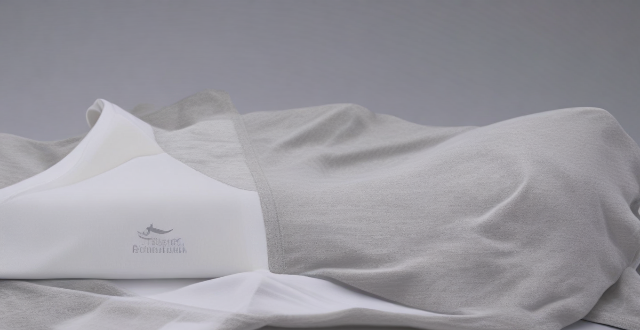Sleep Recovery

How does sleep deprivation affect muscle recovery after workouts ?
Sleep is crucial for muscle recovery after workouts, as it allows the body to repair and rebuild damaged muscle tissue. Sleep deprivation reduces growth hormone production and protein synthesis, leading to inefficient muscle recovery. Strategies for improving sleep quality include establishing a consistent sleep schedule, creating a relaxing bedtime routine, avoiding screens before bed, getting plenty of exercise, and creating a comfortable sleeping environment. By prioritizing sleep, you can improve muscle recovery and overall health.

What is the relationship between sleep and recovery in high-level sports performance ?
Sleep is a vital component of recovery for high-level athletes, playing a significant role in muscle repair, energy restoration, immune function, cognitive function, and emotional well-being. Optimal sleep can lead to improved performance, reduced injury risk, enhanced learning and adaptation, increased motivation and focus, and better weight management. To maximize the benefits of sleep for recovery, athletes should establish good sleep habits such as maintaining a consistent sleep schedule, creating a conducive sleep environment, limiting caffeine and alcohol intake, practicing relaxation techniques, and avoiding naps or keeping them short and early in the day.

How important is rest and sleep in sports recovery ?
Rest and sleep are crucial components of an athlete's recovery regimen, essential for muscle repair, CNS recharge, and mental clarity. Quality and quantity of sleep directly impact athletic performance through deep sleep phases and REM sleep. Practical tips include creating an optimal sleep environment, developing pre-sleep routines, and maintaining proper nutrition and hydration. Prioritizing rest and sleep is key to achieving peak physical condition and driving overall athletic success.

How does sleep impact reaction time and coordination in sports ?
Sleep is a critical determinant of athletic performance, significantly influencing reaction time and coordination. Adequate rest is crucial for muscle recovery and cognitive functions after daytime activities. Studies show that approximately 50%-78% of elite athletes suffer from some form of sleep disorder, with about 25% experiencing severe disorders. Shortened sleep duration negatively affects athletic abilities such as strength and anaerobic capacity. It also increases the risk of injuries by up to 1.7 times in those sleeping less than 8 hours per night. Proper sleep enhances cognitive functions, including decision making and reaction time, which are critical for success in sports. Sleep plays a vital role in the consolidation of motor skills, essential for coordination and precision in sports. Adequate sleep can reduce injury risks by up to 60%, suggesting better muscle recovery and maintenance of physical coordination. Short naps (20-30 minutes) can significantly improve alertness, attention, and overall mental state, leading to better performance. For athletes with sleep deficits, naps have been shown to ameliorate physiological and cognitive conditions, enhancing athletic performance. Combining a short nap with caffeine consumption can be an effective strategy to reduce post-lunch drowsiness and boost afternoon performance. Athletes aged 25 and above tend to report poorer sleep quality than their younger counterparts, indicating varying sleep needs across different age groups. Female athletes are more likely to experience sleep issues, necessitating tailored sleep strategies. Youth athletes should aim for 8 to 10 hours of sleep to support their developmental needs, while adult athletes should target 7 to 9 hours of sleep to ensure adequate recovery and performance optimization.

What role does sleep play in managing stress ?
Sleep is crucial in managing stress by regulating hormones, improving cognition, promoting emotional stability, offering physical health benefits, and enhancing quality of life. Prioritizing sleep is key for effective stress management.

What are the best post-workout recovery techniques
The text discusses the importance of post-workout recovery for achieving optimal physical performance and preventing injuries. The author recommends several techniques including stretching, hydration, protein intake, foam rolling, massage therapy, active recovery, and sleep. Stretching improves flexibility and reduces muscle soreness, while hydration replaces lost fluids during exercise. Protein intake helps repair and rebuild muscles, foam rolling relieves muscle tension, massage therapy reduces inflammation, active recovery promotes circulation, and sleep allows the body to repair and rebuild itself. Incorporating these techniques into a routine can help improve performance and prevent injuries.

What is the importance of recovery in sports training ?
Recovery is a crucial aspect of sports training that often gets overlooked. Athletes and coaches need to understand the importance of recovery and make it an integral part of their training programs. Recovery refers to the process of restoring the body's energy reserves and repairing damaged tissues after physical activity. It is essential for athletes because it allows them to prevent overtraining, promote tissue repair and growth, and enhance mental well-being. There are several effective recovery strategies that athletes can incorporate into their training programs, including active recovery, passive recovery, hydration and nutrition, and sleep. By incorporating these strategies into their training programs, athletes can maximize their recovery benefits and improve their performance on the field or court.

How important is rest and recovery in a sports training plan ?
This article emphasizes the importance of rest and recovery in a sports training plan. It highlights that incorporating rest and recovery into a routine can prevent overtraining, enhance performance, and reduce the risk of injury. The article provides tips on how to incorporate rest and recovery into a training plan, such as scheduling regular rest days, using active recovery techniques, getting enough sleep, and staying hydrated. Overall, the article stresses the significance of giving the body time to heal and repair itself for optimal performance levels.

How important is rest and recovery in skill enhancement ?
The text discusses the importance of rest and recovery in the process of skill enhancement. It highlights the cognitive and physical benefits of taking breaks, such as improved mental clarity, memory consolidation, muscle recovery, and injury prevention. The practical implications include avoiding burnout, enhancing performance, and strategies for incorporating rest into practice schedules. Overall, the text emphasizes that rest is a crucial component of long-term skill development and should be given equal consideration alongside deliberate practice and training regimens.

How does lack of sleep impact athletic performance ?
The text discusses the importance of sleep for athletes, explaining that adequate sleep is essential for muscle recovery and repair, cognitive function, and regulation of energy levels. Lack of sleep can negatively impact athletic performance by decreasing endurance, impairing reaction time and coordination, increasing the risk of injury, altering mood and mental health, and reducing motivation and focus during training or competition. The article concludes that prioritizing sleep as part of an athlete's overall training regimen is crucial for optimal performance.

What role does sleep play in maintaining personal health ?
The text discusses the importance of sleep in maintaining personal health, including its roles in physical restoration and repair, energy conservation, weight management, memory consolidation, emotional regulation, cognitive function, stress reduction, mood stabilization, and relationship health. Adequate sleep is crucial for overall well-being, and prioritizing it can support physical, mental, and emotional health.

How does sleep quality affect athletic performance and health ?
This text explains how sleep quality affects athletic performance and overall health. It emphasizes the importance of sleep for physical recovery, mental well-being, and immune system support in athletes. Poor sleep quality can lead to decreased performance, increased injury risk, and mental health issues. The text provides tips for improving sleep quality, such as establishing a consistent sleep schedule and creating a comfortable sleep environment. Adequate sleep is crucial for optimal athletic performance and overall health.

What is the relationship between sleep and athletic performance ?
The relationship between sleep and athletic performance is crucial, as adequate sleep is essential for athletes to perform at their best both physically and mentally. During sleep, the body undergoes recovery and repair processes, including muscle growth and repair and immune system functioning. Sleep also plays a vital role in maintaining mental health and cognitive functioning, such as concentration and focus and mood regulation. Additionally, sleep is crucial for maintaining energy levels and endurance, particularly for endurance athletes. However, sleep deprivation can have several negative effects on an athlete's performance, including decreased reaction time, impaired coordination, reduced endurance, increased perceived exertion, and altered perception. Therefore, it is essential for athletes to prioritize their sleep and ensure they get enough restful sleep each night to maximize their athletic performance.

How important is rest in the recovery process of a sports injury ?
The Importance of Rest in the Recovery Process of a Sports Injury Rest is crucial for healing, preventing further injury, reducing pain, and supporting mental health during recovery. Tips for proper rest include following doctor's orders, creating a comfortable environment, staying hydrated and nourished, getting enough sleep, and staying active (but safely).

How does exercise affect sleep patterns and quality ?
Exercise significantly influences sleep patterns and quality. Immediate effects include increased alertness and better body temperature regulation for sleep. Long-term, regular exercise improves sleep quality and regulates sleep patterns. Different types of exercise—aerobic, anaerobic, and mindful movements like yoga—all positively affect sleep but may require varying recovery times. The timing of exercise is crucial; morning workouts set the day's tone with minimal sleep interference, while late-night exercises can hinder sleep preparation. Tailoring workout routines to individual needs optimizes rest and overall well-being.

What is the relationship between exercise, sleep quality, and emotional well-being ?
The text explores the interconnectedness of exercise, sleep quality, and emotional well-being. It outlines how physical activity enhances mood through endorphin release and long-term health benefits. Sleep quality is crucial for emotional processing and resilience against stress. Mutual benefits exist between exercise and sleep, with each improving the other. A holistic approach to health includes attention to all three components for optimal well-being.

Can sports supplements help with muscle recovery after workouts ?
Can Sports Supplements Help with Muscle Recovery After Workouts? Physical exercise and workouts are essential for maintaining a healthy lifestyle, but they can also lead to muscle fatigue and soreness. Many athletes and fitness enthusiasts turn to sports supplements to aid in muscle recovery after workouts. But do these supplements really work? Let's explore the topic in detail. What are Sports Supplements? Sports supplements are dietary products designed to enhance athletic performance, improve physical health, and support recovery from exercise. They come in various forms, including powders, pills, and liquids, and can be consumed before, during, or after workouts. Types of Sports Supplements - Protein Powders: Help in muscle repair and growth. - Creatine: Boosts energy production in muscles. - Branched-Chain Amino Acids (BCAAs): Support muscle building and recovery. - Glutamine: Aids in muscle recovery and immune function. - Omega-3 Fatty Acids: Reduce inflammation and promote heart health. - Multivitamins/Minerals: Support overall health and wellness. How Do Sports Supplements Help with Muscle Recovery? - Protein Powders: Consuming protein powders after a workout can help replenish depleted amino acids, leading to faster recovery times. - Creatine: Increases the availability of phosphocreatine, which helps regenerate ATP more quickly during high-intensity exercises, reducing muscle fatigue and aiding in recovery. - BCAAs: Consuming BCAA supplements before or during workouts can reduce muscle damage and speed up recovery processes. - Glutamine: Supports muscle recovery by helping maintain cellular volume and preventing muscle breakdown. It also supports immune function, which is important for overall health and recovery. - Omega-3 Fatty Acids: Have anti-inflammatory properties that can help reduce muscle soreness and stiffness after workouts. They also support heart health, which is crucial for athletes who engage in cardiovascular exercises. - Multivitamins/Minerals: While not directly related to muscle recovery, consuming multivitamins or minerals can support overall health and wellness, which indirectly aids in recovery processes. Are Sports Supplements Safe? While sports supplements can be beneficial for some individuals, it's important to note that they are not regulated by the Food and Drug Administration (FDA). This means that their safety and effectiveness may vary between brands and products. It's always best to consult with a healthcare professional before starting any supplement regimen. Additionally, relying solely on supplements without proper nutrition and rest can be counterproductive. A balanced diet, adequate sleep, and proper hydration are still key components of effective muscle recovery.

Does exercise increase deep sleep ?
Exercise can increase deep sleep by promoting thermal downregulation and improving sleep efficiency over time. Regular exercise is recommended to enhance sleep quality, but timing is crucial to avoid sleep disruption.

How do professional athletes train and practice ?
Professional athletes engage in comprehensive training and practice routines to excel in their sports. Their regimens include physical conditioning through cardiovascular exercises, strength training, and flexibility practices. They also focus on technical skill development through repetitive drills, scrimmages, video analysis, and virtual reality training. Mental preparation is equally important, involving visualization techniques and sports psychology consultations. Recovery and regeneration strategies encompass proper nutrition, sleep habits, and active recovery methods like light exercise and massage therapy. These components all work together to ensure athletes reach peak performance while minimizing the risk of injury.

How can I improve my flexibility and range of motion during sports recovery ?
Improving Flexibility and Range of Motion during Sports Recovery: - Incorporate dynamic and static stretching routines before and after physical activities. - Use foam rolling for self-myofascial release to aid recovery and increase range of motion. - Include yoga or Pilates in your routine to improve flexibility and balance through mindful movements and breath control. - Maintain proper nutrition by staying hydrated, consuming adequate protein, and eating anti-inflammatory foods. - Ensure adequate rest through sleep and active rest days. - Practice consistency in these strategies and track progress to monitor improvements over time. - Consult with professionals like physical therapists and sports trainers for personalized guidance and injury prevention.

Is there a link between sleep duration and sports injuries ?
This article explores the relationship between sleep duration and sports injuries, highlighting the importance of adequate sleep for athletes. Studies have found that both short and long sleep durations can increase the risk of injury, emphasizing the need for a balanced approach to sleep. Athletes are advised to establish consistent sleep habits, aim for 7-9 hours of sleep per night, and monitor their sleep patterns to minimize the risk of sports injuries and enhance performance.

Does consistent exercise regulate sleep patterns ?
Consistent exercise has been shown to have a positive impact on sleep patterns, helping regulate the body's internal clock and increase the production of sleep-promoting hormones. Regular physical activity can lead to better sleep quality, reduced stress and anxiety, and improved overall health. To reap these benefits, it's important to incorporate regular exercise into your routine, starting slowly and gradually increasing intensity and duration over time.

How long should I nap during the day without affecting night-time sleep ?
Daytime naps can be advantageous for boosting energy and productivity, but it is essential to consider their duration to avoid impacting night-time sleep. The ideal lengths of daytime naps are the 20-30 minute power nap and the 90-minute recovery nap. It is crucial to avoid oversleeping during the day, which can lead to difficulty falling asleep at night. To make the most out of your nap time, find a quiet and comfortable place, limit caffeine intake, create a relaxing environment, set an alarm, be consistent, avoid napping too close to bedtime, and listen to your body. By following these tips, you can enjoy the benefits of daytime naps while still getting a good night's sleep.

How does exercise affect sleep quality ?
Exercise is crucial for maintaining a healthy lifestyle and has a significant impact on sleep quality. Regular physical activity can improve sleep onset, increase deep sleep, reduce stress and anxiety, regulate body temperature, and promote better breathing during sleep. To incorporate exercise into your daily routine, start slowly, choose enjoyable activities, schedule workouts, mix up your routine, be mindful of timing, listen to your body, stay hydrated, get enough rest, seek support, and track your progress.

How do sports nutrition supplements affect muscle recovery after a workout ?
Sports nutrition supplements can significantly support muscle recovery post-workout by providing essential nutrients. Protein supplements like whey and casein replenish amino acids, while carbohydrate supplements such as BCAAs and beta-alanine reduce soreness and fatigue. Other nutrients, including creatine, glutamine, and vitamins/minerals, further enhance recovery. A structured supplementation routine, tailored to individual needs, can optimize muscle recovery and athletic performance.

How can I improve my sleep quality ?
Improving sleep quality involves establishing a bedtime routine, creating a comfortable sleep environment, limiting caffeine and alcohol intake, avoiding electronics before bed, exercising regularly, managing stress levels, and considering natural sleep aids.

What are the effects of poor sleep on endurance sports ?
Poor sleep can negatively impact endurance sports performance by decreasing athletic performance, impairing cognitive function, increasing the risk of injury, and elevating stress levels. Endurance athletes should prioritize getting enough high-quality sleep each night to optimize their physical and mental abilities while reducing their risk of injury and illness.

What role does technology play in modern disaster response and recovery ?
Technology plays a vital role in modern disaster response and recovery by enhancing early warning systems, improving communication and coordination, and enabling efficient data collection and analysis.

How does shift work impact sleep patterns, and what can be done about it ?
Shift work can significantly disrupt sleep patterns due to conflicts with the natural circadian rhythm. Strategies for managing sleep disruptions include maintaining a consistent sleep schedule, creating a sleep-friendly environment, avoiding stimulants before bedtime, getting adequate exercise, and seeking professional help if needed.